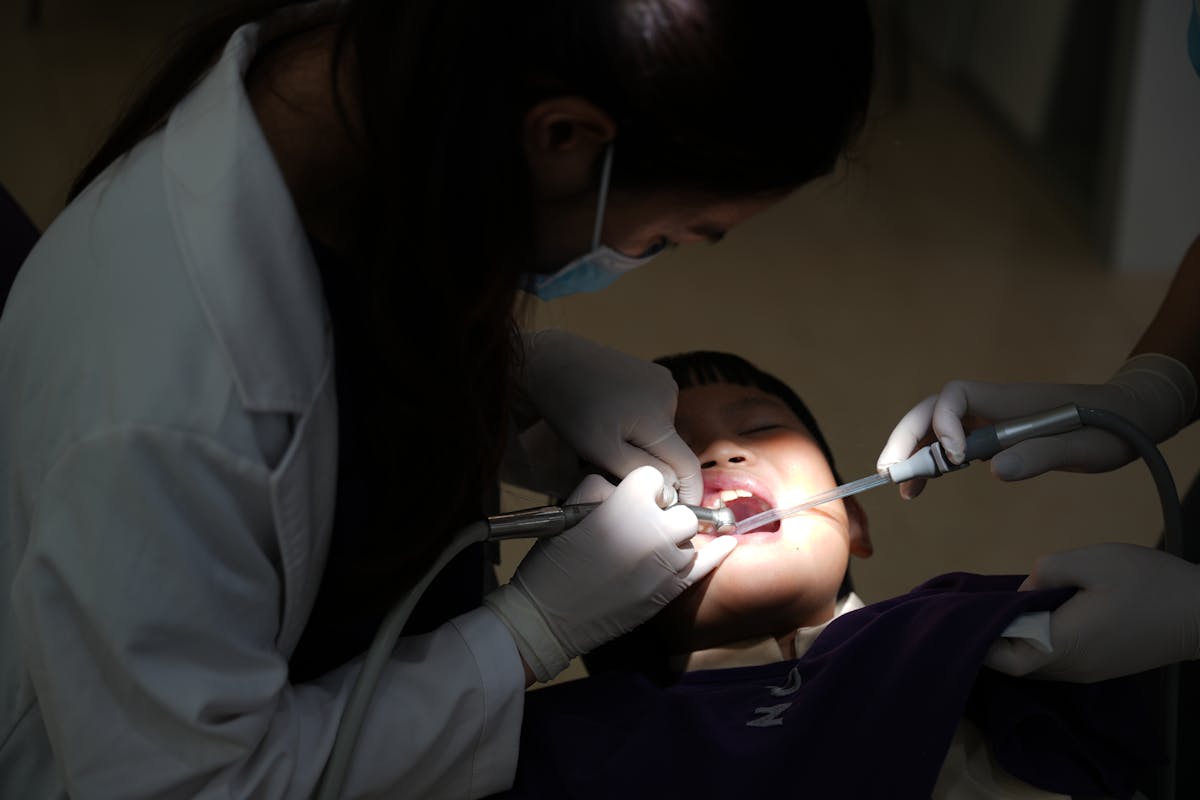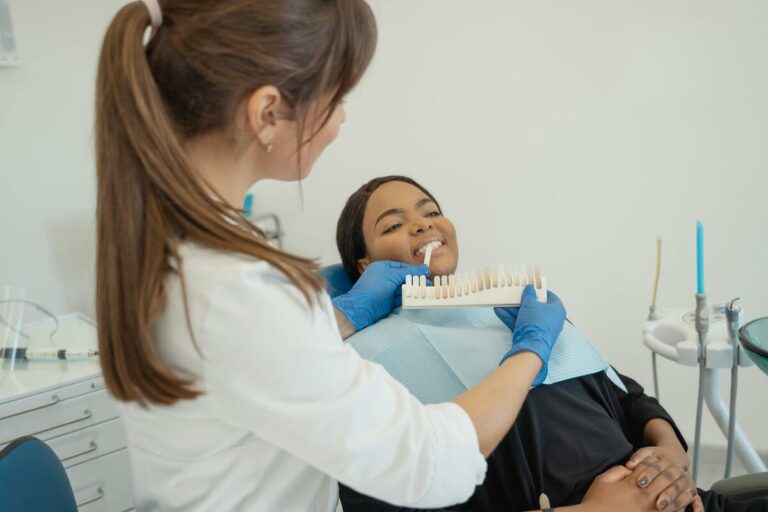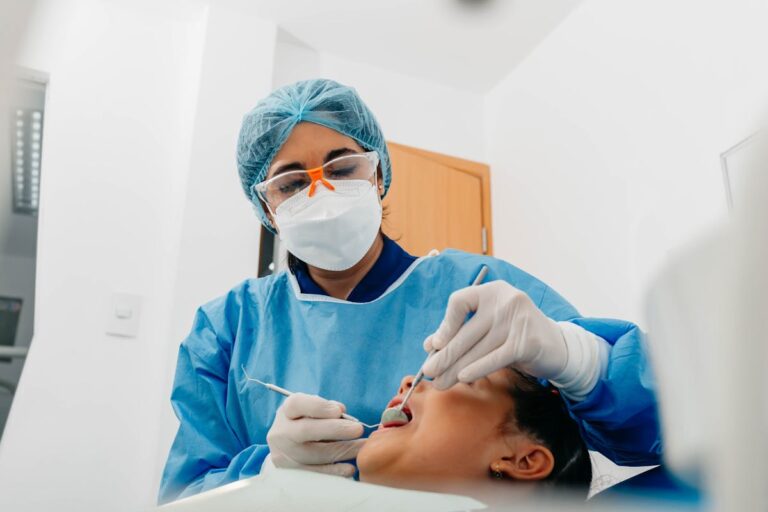The Ultimate Guide to Pediatric Dental Care in Live Oak: What Parents Need to Know
Parents in Live Oak often find themselves steering through the complex world of pediatric dental care without a clear roadmap. It’s essential to understand the importance of early dental visits and the milestones of tooth development. Establishing healthy habits at home can prevent common issues like cavities. Furthermore, managing dental anxiety and knowing the role of nutrition can make a significant difference. But how can they guarantee they’re making the best choices for their child’s dental health?
Importance of Early Dental Visits for Children
Early dental visits play an essential role in a child’s overall health and well-being. These initial appointments are not merely about examining tiny teeth but are pivotal for early detection of potential dental issues. A dentist’s expert eye can identify concerns before they escalate, ensuring that minor problems do not become significant complications. Additionally, these visits emphasize preventive care, a cornerstone of maintaining oral health. Through education and guidance, parents learn the best practices for their child’s dental hygiene, which can prevent cavities and gum disease. Introducing children to dental care early fosters a positive attitude towards oral health, reducing anxiety associated with dental procedures. By prioritizing early visits, caregivers set the foundation for a lifetime of healthy smiles.
Key Milestones in Pediatric Dental Development
Understanding the key milestones in pediatric dental development is essential for fostering lifelong oral health. The teeth eruption timeline is a critical aspect, beginning with primary teeth around six months and continuing until the early teenage years with the emergence of permanent teeth. Establishing proper oral hygiene habits early in a child’s life sets the foundation for healthy teeth and gums, influencing their overall well-being.
Teeth Eruption Timeline
The journey of pediatric dental development is marked by several key milestones that parents and caregivers should be aware of to guarantee proper oral health. Understanding the teeth eruption timeline is vital in anticipating teething symptoms and recognizing normal eruption patterns. Typically, the first teeth to appear are the lower central incisors, around six months of age, followed by the upper central incisors. As children grow, molars and canines emerge, usually concluding with the second molars by age three. Awareness of these patterns can help in identifying any deviations that may require professional attention. Recognizing teething symptoms, such as irritability and drooling, can guide parents in providing comfort measures, ensuring a smoother change through this essential phase of a child’s development.
Oral Hygiene Habits
When establishing oral hygiene habits in children, consistency and patience are essential components for success. Children benefit from learning proper brushing techniques early on, as these skills lay the foundation for lifelong dental health. Parents should encourage children to brush twice daily using small, circular motions to effectively remove plaque. As children become more adept, introducing the flossing importance is vital; flossing reaches areas between teeth that brushing alone cannot. This practice can prevent cavities and gum disease, promoting healthier gums and teeth. It is recommended that parents supervise and assist their children until they develop the dexterity required for effective flossing. With a compassionate approach, caregivers can instill positive oral hygiene practices, ensuring children’s smiles remain bright and healthy.
Establishing Healthy Dental Habits at Home
Cultivating strong dental habits at home is vital for maintaining children’s oral health. Establishing an effective dental hygiene routine early helps prevent future dental issues. Parents should introduce children to proper brushing techniques by demonstrating and guiding them. Using a soft-bristled toothbrush and fluoride toothpaste, children should brush their teeth twice daily. Parents can make brushing fun by using songs or timers to guarantee the recommended two-minute duration is met. Additionally, flossing should be introduced once two teeth touch. Encouraging healthy dietary habits, such as limiting sugary snacks and drinks, supports oral health by reducing plaque buildup. Regular dental check-ups are important for monitoring progress and reinforcing these habits. By prioritizing these practices, parents can nurture lifelong dental health in their children.
Understanding Common Pediatric Dental Issues
Understanding common pediatric dental issues is essential for ensuring long-term oral health in children. Preventing tooth decay, managing dental anxiety, and addressing bite issues are critical components of pediatric dental care that require attention from both parents and dental professionals. By recognizing and addressing these concerns early, caregivers can foster a positive dental experience and promote healthier outcomes for children.
Tooth Decay Prevention
Tooth decay remains a prevalent concern among pediatric dental issues, as it poses substantial risks to children’s oral health if not addressed promptly. Early intervention and preventive measures are essential in safeguarding young smiles. Offering tooth-friendly snacks, such as fresh fruits, vegetables, and cheese, can greatly reduce cavity risks. These foods stimulate saliva production and provide crucial nutrients for strong teeth. Additionally, fluoride treatments play a key role in reinforcing tooth enamel and preventing decay. Regular dental check-ups guarantee timely application of fluoride, enhancing its protective benefits. Parents are encouraged to foster good oral hygiene habits, including proper brushing and flossing routines, to complement these preventive strategies. Educating children on these practices empowers them to take charge of their oral health.
Managing Dental Anxiety
While preventive measures such as proper oral hygiene and fluoride treatments are key to maintaining children’s dental health, addressing emotional aspects like dental anxiety is equally important. Dental anxiety in children can be effectively managed through a combination of approaches. Breathing exercises help calm nerves and are a simple technique children can practice before and during dental visits. Positive reinforcement, such as praising bravery or offering small rewards, encourages a more positive outlook on dental care. Distraction techniques, like engaging conversations or playing soft music, divert attention away from anxiety-inducing stimuli. Additionally, dental education empowers children by familiarizing them with procedures, thereby reducing fear of the unknown. These strategies, when combined, can create a more comfortable and stress-free dental experience for young patients.
Addressing Bite Issues
How can parents recognize and address bite issues early in their children? Early detection is essential in managing pediatric bite problems. Parents should observe their child’s teeth alignment and jaw development. Signs such as difficulty in chewing, speech issues, or visibly misaligned teeth may necessitate a professional bite assessment. A pediatric dentist can evaluate the child’s oral structure and recommend appropriate orthodontic interventions if needed. Interventions might include braces or retainers, which are more effective when applied early, taking advantage of the child’s growing bones. Addressing these issues promptly not only improves dental function but also boosts self-esteem. Timely orthodontic care guarantees a healthier, more confident smile, laying a strong foundation for a child’s future oral health.
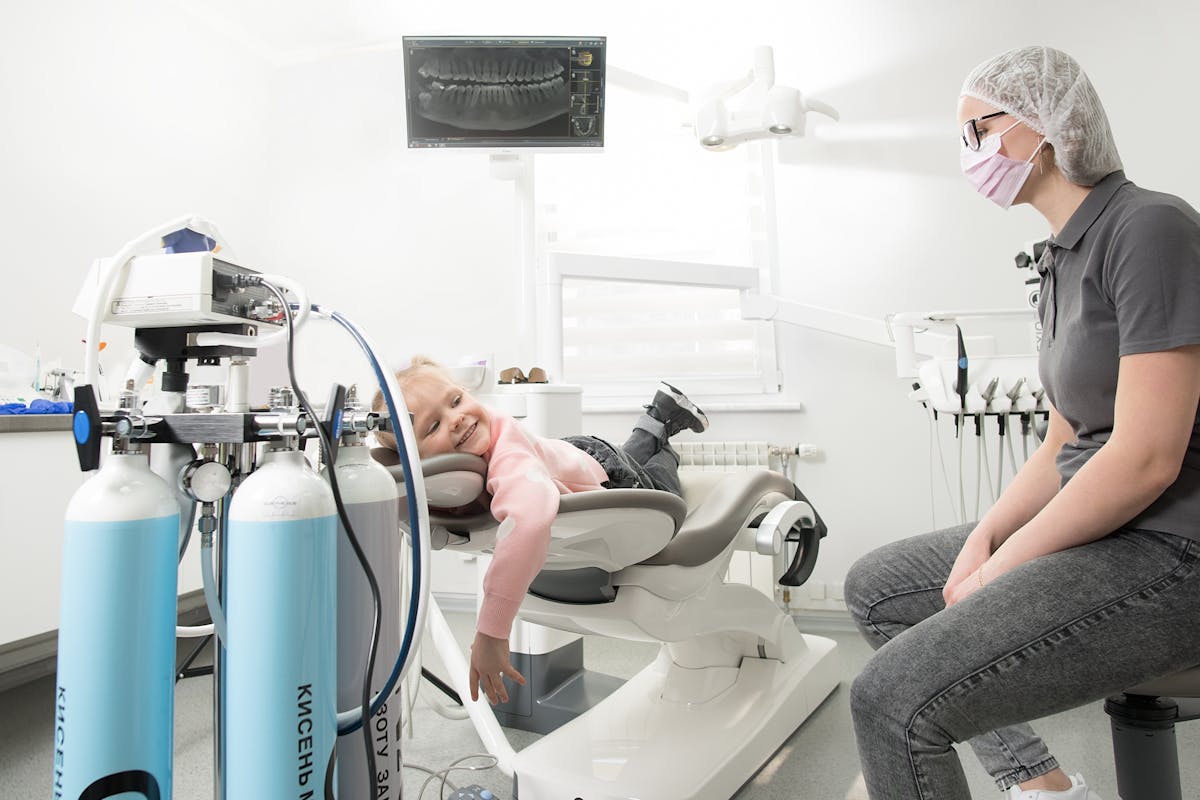
Tips for Preventing Cavities in Children
Ensuring children maintain healthy teeth is a significant aspect of their overall well-being. Preventing cavities requires informed strategies that parents can easily implement. Regular fluoride treatments are fundamental, as they strengthen tooth enamel, making it more resistant to decay. Dentists often recommend these treatments during routine check-ups. In addition, applying dental sealants is a highly effective preventive measure. These thin, protective coatings are applied to the chewing surfaces of molars, guarding against food particles and bacteria that cause cavities. Alongside professional care, encouraging proper oral hygiene practices at home is essential. This includes brushing twice daily with fluoride toothpaste and flossing to remove plaque. Parents should also limit sugary snacks and drinks, promoting a balanced diet for the best dental health.
Managing Dental Anxiety in Young Patients
Why is it that so many young patients experience anxiety about visiting the dentist? This fear often stems from a lack of familiarity with the dental environment, amplified by stories or prior negative experiences. To mitigate this anxiety, dental professionals recommend visualization techniques, which involve guiding children through mental imagery of a positive dental visit. This helps them anticipate the process calmly. Additionally, relaxation exercises, such as deep breathing, can be taught to young patients to ease their nerves. These strategies empower children to manage their emotions effectively, fostering a more positive association with dental care. Compassionate communication by dental staff, combined with parental support, further assists in creating a reassuring atmosphere for young patients, making dental visits less intimidating.
The Role of Nutrition in Oral Health
Nutrition plays a pivotal role in maintaining ideal oral health, setting the foundation for strong teeth and gums. Essential vitamins and minerals, found in a balanced diet, greatly contribute to the development and maintenance of healthy dental structures. Calcium and vitamin D, for instance, are integral in fortifying enamel and supporting jawbone strength. The nutritional impact of dietary choices becomes evident when examining sugar intake, as excessive consumption may lead to tooth decay. Encouraging children to consume fruits, vegetables, and dairy products can reduce the risk of cavities and promote overall oral hygiene. Additionally, water consumption aids in flushing away food particles, reducing bacterial growth. Parents should emphasize nutritional impact and mindful dietary choices to foster lifelong oral health in their children.
Choosing the Right Pediatric Dentist in Live Oak
When selecting a pediatric dentist in Live Oak, how can parents guarantee they are making the best choice for their child’s oral health? First, it is essential to verify the pediatric dentist’s qualifications. Parents should seek professionals with specialized training in children’s dentistry and membership in reputable organizations like the American Academy of Pediatric Dentistry. Additionally, the dental office environment plays a significant role in a child’s comfort and anxiety levels. A welcoming, child-friendly setting equipped with age-appropriate amenities can ease apprehension and foster a positive dental experience. Reviews and recommendations from other parents can also offer valuable insights. Ultimately, ensuring both the dentist’s expertise and the office atmosphere promotes a supportive environment for maintaining a child’s oral health.
Preparing for Dental Emergencies With Kids
Although dental emergencies can be distressing, being prepared can greatly alleviate anxiety and guarantee swift, effective care for children. Parents should assemble emergency kits specifically designed for dental incidents. These kits might include items such as gauze for bleeding, a small container with a lid for preserving a knocked-out tooth, and a cold compress to manage swelling. Understanding basic first aid techniques is equally vital; knowing how to control bleeding or temporarily reattach a broken tooth can make a significant difference. Additionally, having the pediatric dentist’s contact information readily available guarantees that professional help is secured promptly. Educating children about oral safety and what to expect during an emergency can further minimize fear and ensure they remain calm during unexpected situations.
Frequently Asked Questions
How Can I Make Dental Visits Fun for My Child?
To make dental visits enjoyable, caregivers can introduce dental games and employ positive reinforcement techniques. This approach fosters a fun, stress-free environment, encouraging children to associate dental care with positive experiences, ultimately promoting better oral health habits.
What Dental Products Are Safe for Toddlers?
When selecting dental products for toddlers, guarantee the use of fluoride-free, safe toothpaste specifically designed for young children. Additionally, opt for alcohol-free toddler mouthwash to protect their developing teeth and maintain a healthy oral environment.
Are There Any Dental Apps for Kids Available?
Several dental apps for kids are available, featuring interactive dental games that promote oral hygiene education. These apps engage children through fun activities, teaching them important brushing and flossing techniques, thereby fostering lifelong healthy dental habits.
How Often Should Children’s Toothbrushes Be Replaced?
Children’s toothbrushes should be replaced every three to four months for ideal oral hygiene. Proper replacement guarantees toothbrush lifespan is not exceeded, preventing bristle wear that can reduce cleaning effectiveness and promote better dental health.
Can Teething Affect My Child’s Sleep Patterns?
Teething can cause sleep disturbances in children as discomfort arises. Parents seeking relief should explore teething remedies like chilled teething rings or gentle gum massages. Offering comfort can help manage disrupted sleep and promote better rest for the child.
